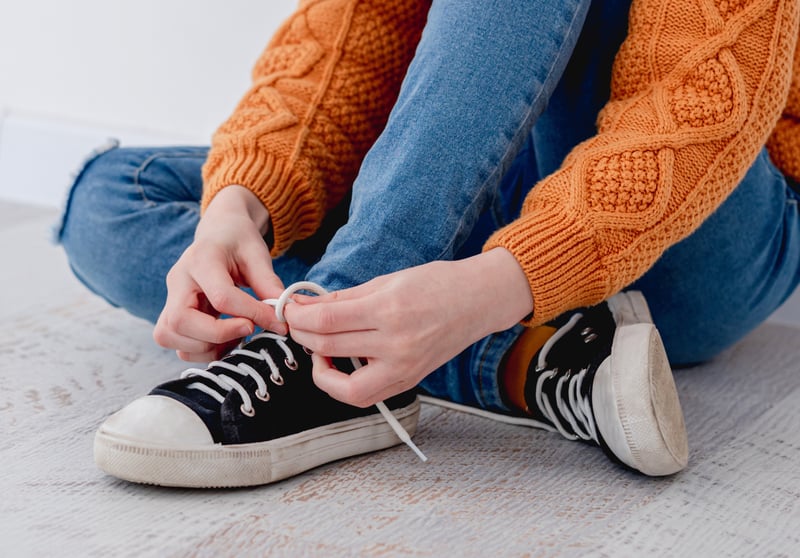Get Healthy!

- Cara Murez
- Posted August 8, 2023
Step Up to a New School Year: Tips for Buying Shoes for Your Kids
Buying back-to-school shoes should be more about the right fit than the right look -- but with luck you can combine the two.
Shoes play a big part in how kids' feet function and should be selected with care, say orthopedists at the Hospital for Special Surgery (HSS) in New York.
"When parents bring their children in with foot pain or an injury, the first thing I do is ask about their shoes. The problem is often inappropriate or poorly fitting footwear,"said Dr. John Blanco, a pediatric orthopedic surgeon who sees patients at HSS in New York City and on Long Island.
"Footwear has a lot to do with how their feet function day to day, especially during athletic activities," Blanco said in a hospital news release.
Start by thinking about fit in terms of length and width. Factor in good arch support. And be sure to get a shoe made of sturdy materials.
"If we could make sure shoes were the right size, had proper support and were laced up appropriately, we would probably solve 80% of the basic foot problems we see in kids,"Blanco said.
Shopping for shoes at a specialty store can be helpful because staff there can measure the foot and help select the best shoe for a child's foot type, Blanco said.
That doesn't mean the shoes need to cost a lot.
"The price of the sneaker has nothing to do with the quality of the shoe,"Blanco said. "I see kids all the time with shoes that may look fancy on the outside, but you look inside and see that they don't provide support."
Physical therapist Joseph Molony, who is manager of the Young Athlete Program at HSS, recommends getting a good quality shoe from a known brand. That doesn't mean a luxury brand, but a solid name-brand shoe will generally be well constructed of quality materials, Molony said.
Molony suggests figuring out which brand fits best. Each company uses a specific foot mold when designing shoes. Your child may need a narrower heel, a wider toe box or a higher arch. Trying out different brands can help you figure out what fits best.
Good-fitting shoes should be comfortable yet snug with no gaps between your child's foot and the inside of the shoe. Yet the shoe shouldn't be so tight that it rubs the foot in certain spots. The heel should not rise up out of the shoe when walking.
Blanco recommends shoes that lace instead of Velcro. Laces should go to the top hole and be tied snugly to provide stability. Always have your kids tie their shoes, not just slip their foot into an already tied shoe, he advised.
"A loose shoe can leave someone more prone to injury if playing a sport,"Blanco said.
Use caution when considering soft, flexible, cross training and minimalist shoes that you can roll up or twist.
Runners may want to alternate running shoes every other day, so get two pairs, he said, noting they'll cost about the same in the long run.
If your son or daughter plays a sport, choose a shoe made specifically for that activity. Running shoes, for example, are not appropriate for court and field sports.
Also, retire shoes once they're worn out because they no longer provide the right support.
"The main problem I see is that people wear their shoes to the very end. The shoelaces are broken, their toe is ripping through the side of the shoe, the sole is worn down, but they love the shoes,"Blanco said.
More information
The U.S. National Library of Medicine has more on foot injuries.
SOURCE: Hospital for Special Surgery, news release, Aug. 4, 2023


